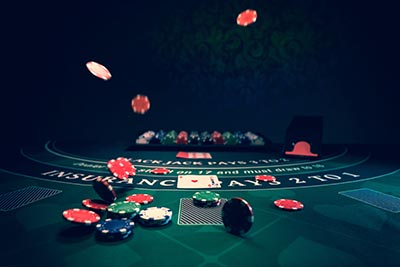
Gambling dates back to the dawn of time, with the earliest signs of gambling dating back to 2300 B.C.— nearly 1700 years before the first minted currency was invented. Before money, people would gamble their belongings, including food or cattle.
While gambling has changed tremendously during those early days huddled around a fire in caves, the core principle has not: you place a bet for a chance to win or risk losing it all.
The history of gambling is as fascinating as the dynamic it presents. Here are some key ways the gambling industry has evolved.
The creation of gambling environments
Before the 1600s, gambling was something that happened privately. While playing cards date back to China in 800 A.D., these were far different from our modern 52-card pack. People would come together in alleys, homes, or drinking establishments to place their bets.
Then, casinos were invented.
The first casino is thought to originate in Italy in the 1600s. While people would come together to gamble well before then, these establishments were the first known controlled gambling environments. Not only did this development create structure and rules surrounding gambling games, but it also led to the concept that the house always wins.
Gambling houses became more commonplace during the 1800s in Europe and started to appear in the USA shortly thereafter. While many associate American gambling with Las Vegas, this epicenter of gambling culture didn’t bloom until after the Great Depression.
The introduction of machinery
The earliest dice date back to ancient Egypt, with the earliest known set originating in 3000 B.C. While the tools used to gamble evolved over the millennia, the industrial revolution changed everything. The first known slot machine was invented in the latter half of the 1800s. It was the foundation of our modern slot machines, boasting three spinning reels and an automatic payout when a match occurred.
The first video slot machine followed a century later. Many slot machines still bear the symbol of the Liberty Bell, an homage to the original invention.
A shift to online gambling
The next significant shift in gambling history happened a mere 20 years after the first VLT hit the market. Enter the internet and the introduction of online gambling. Now, instead of venturing out to a local pub to hit the VLTs, gambling enthusiasts could visit sites like judi online to find their favorite games from the comfort of their own homes.
Internet gambling and hitting the online judi slot was not to be a fad. Online gambling became a multibillion-dollar industry before the year 2000, and it remains so today.
Movement to mobile
If you experienced the internet in the 1990s, you’re familiar with the screeching sounds of dial-up, slow loading times, and dependence on a phone line. Now, the world is mobile. Most people carry access to the world wide web in their pocket with few limitations. That means online gamblers can access games from anywhere.
It’s hard to believe that online gambling has only become widely legalized within the past decade. Now, the online gambling market is expected to reach $53,755.7 Million by the end of 2025.
Increased regulation and ethics
Gambling was illegal for a long time in the Western hemisphere, especially during the prohibition era. All of that changed after the Great Depression, which led to the birth of gambling hubs like Las Vegas and Atlantic City. At the time, legal gambling was limited to specific areas, which is why these cities became gambling meccas.
Internet law has been a challenge since day one, as it defies jurisdictions and continuously creates new challenges for lawmakers. While gambling is largely legal in the USA and surrounding countries, there are small gray areas to consider.
What has improved is the legislation for casinos and gambling businesses to be more ethical and enforce responsible gambling.
What’s next?
It’s difficult to predict what will happen next in the world of gambling. Technology makes it easier to track the movement of money. Innovations like augmented reality could shape the future of betting. Only time will tell how this ancient practice will continue to evolve.
Story by Nikita Ross










